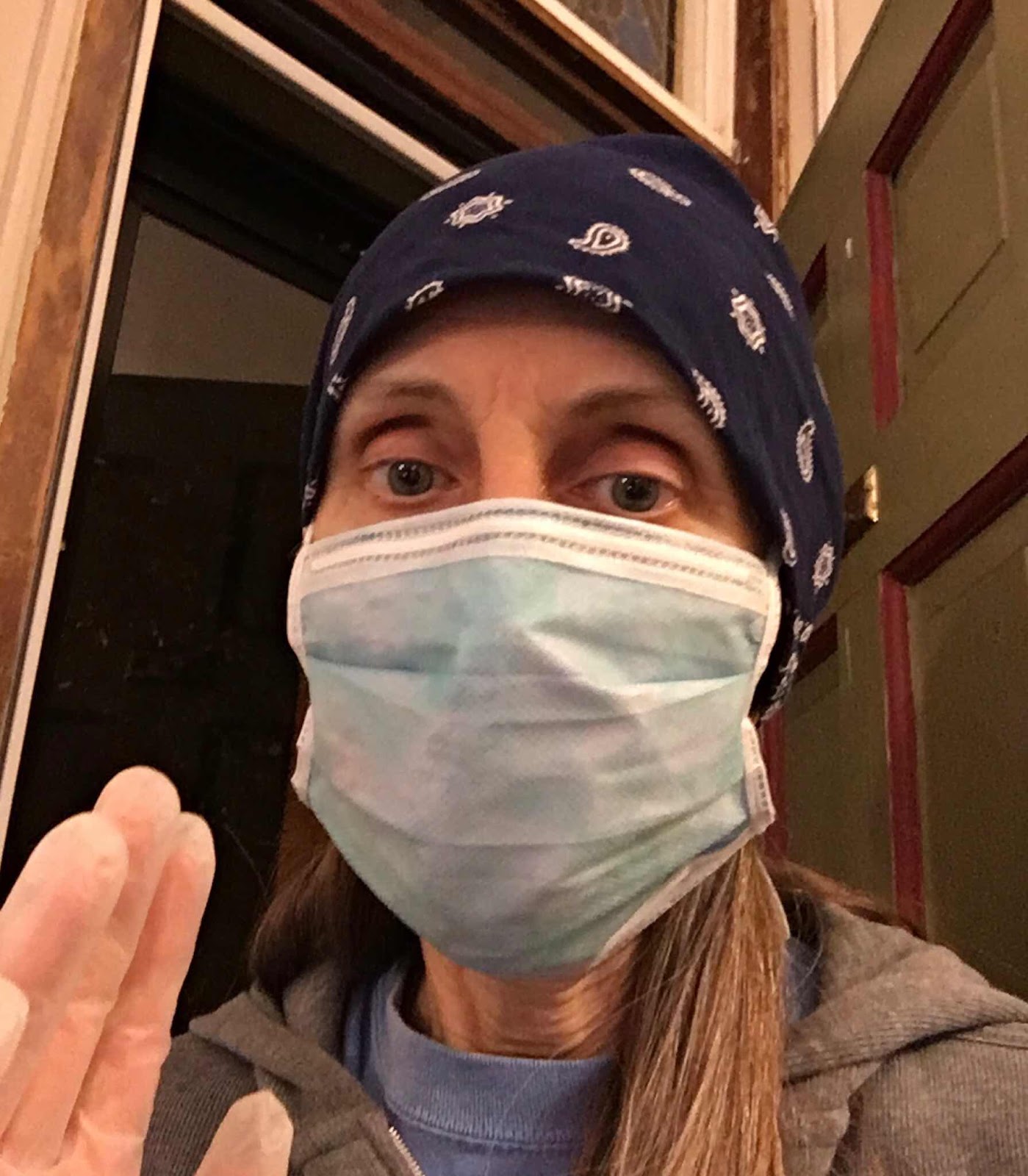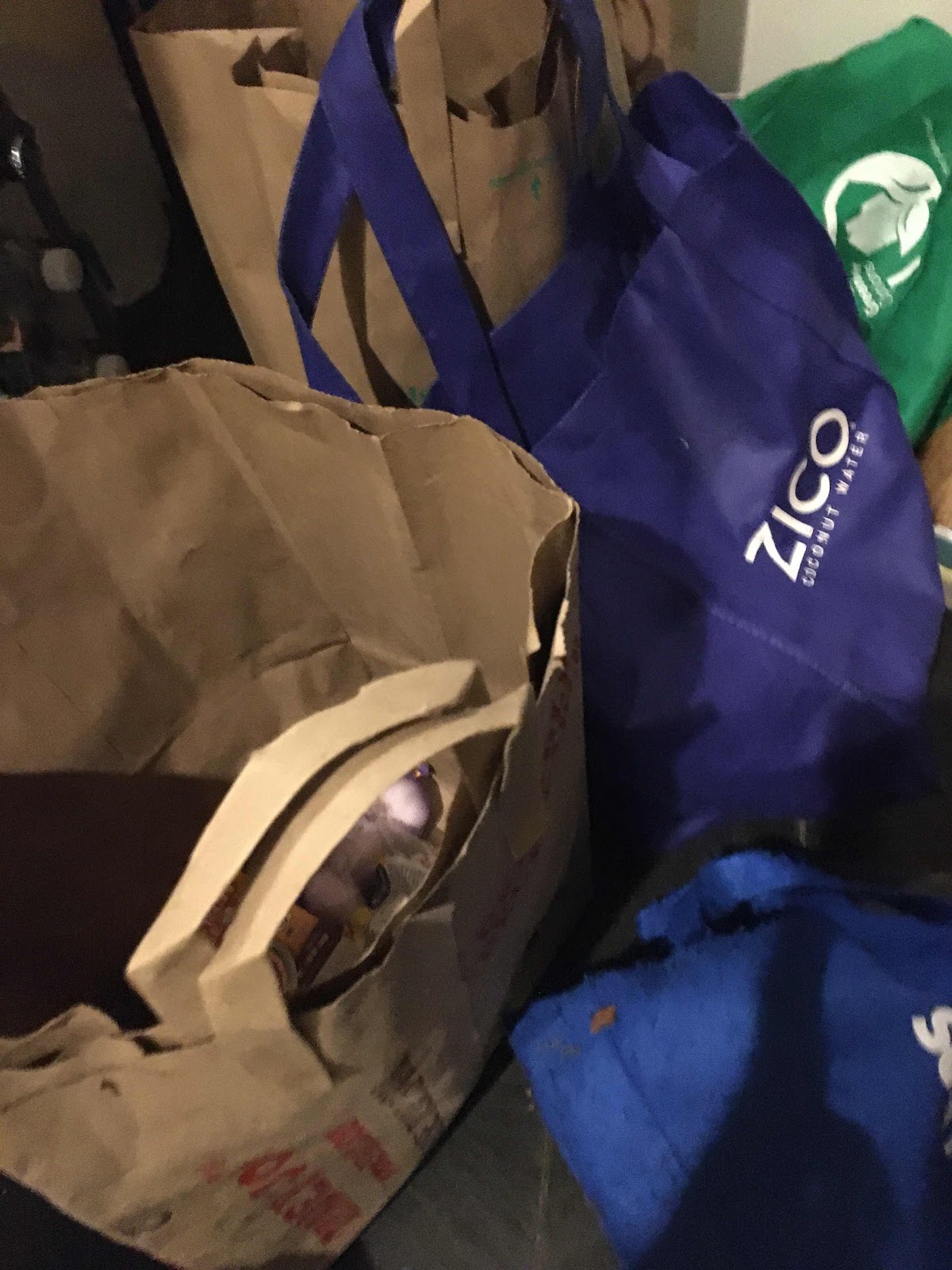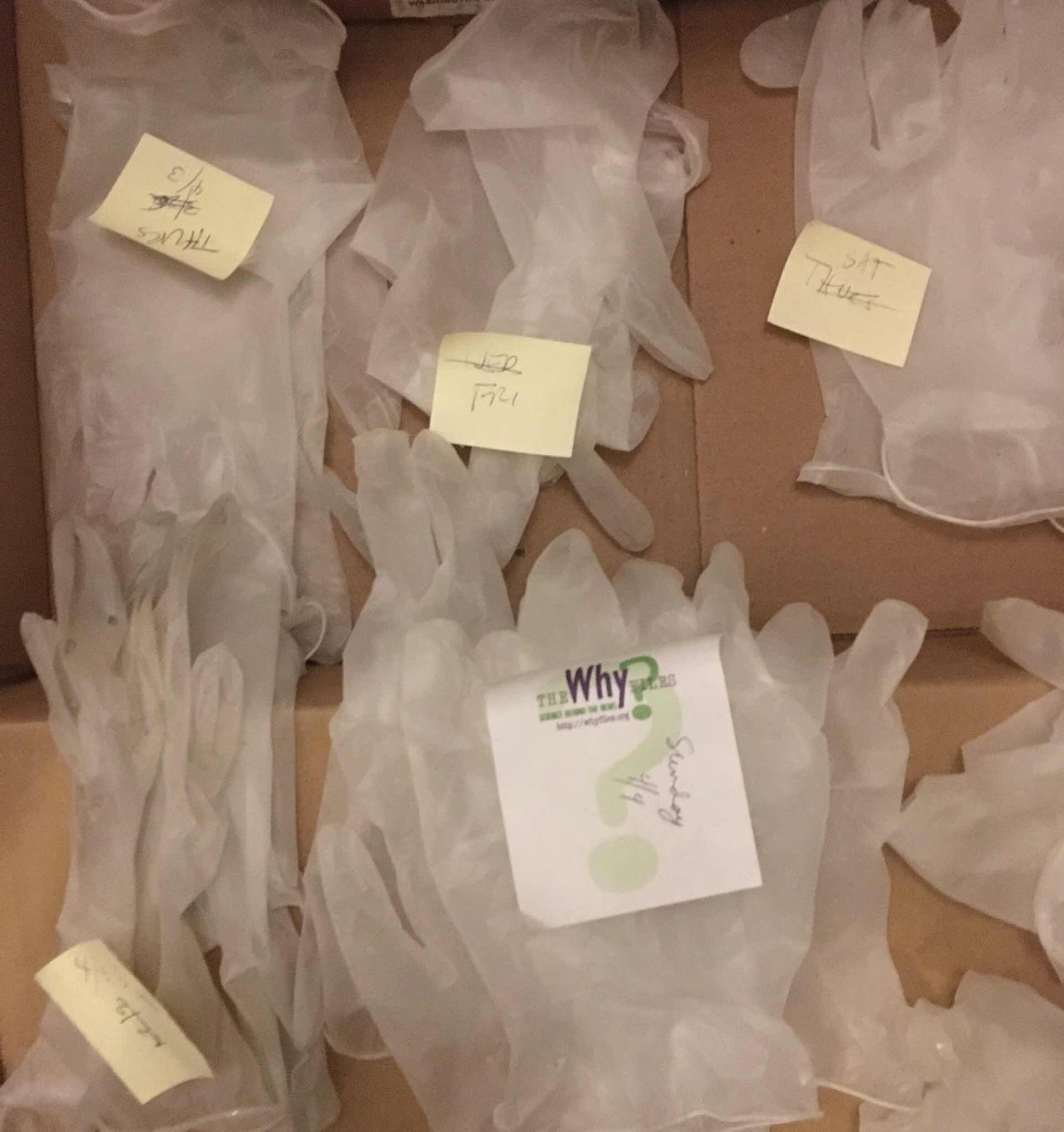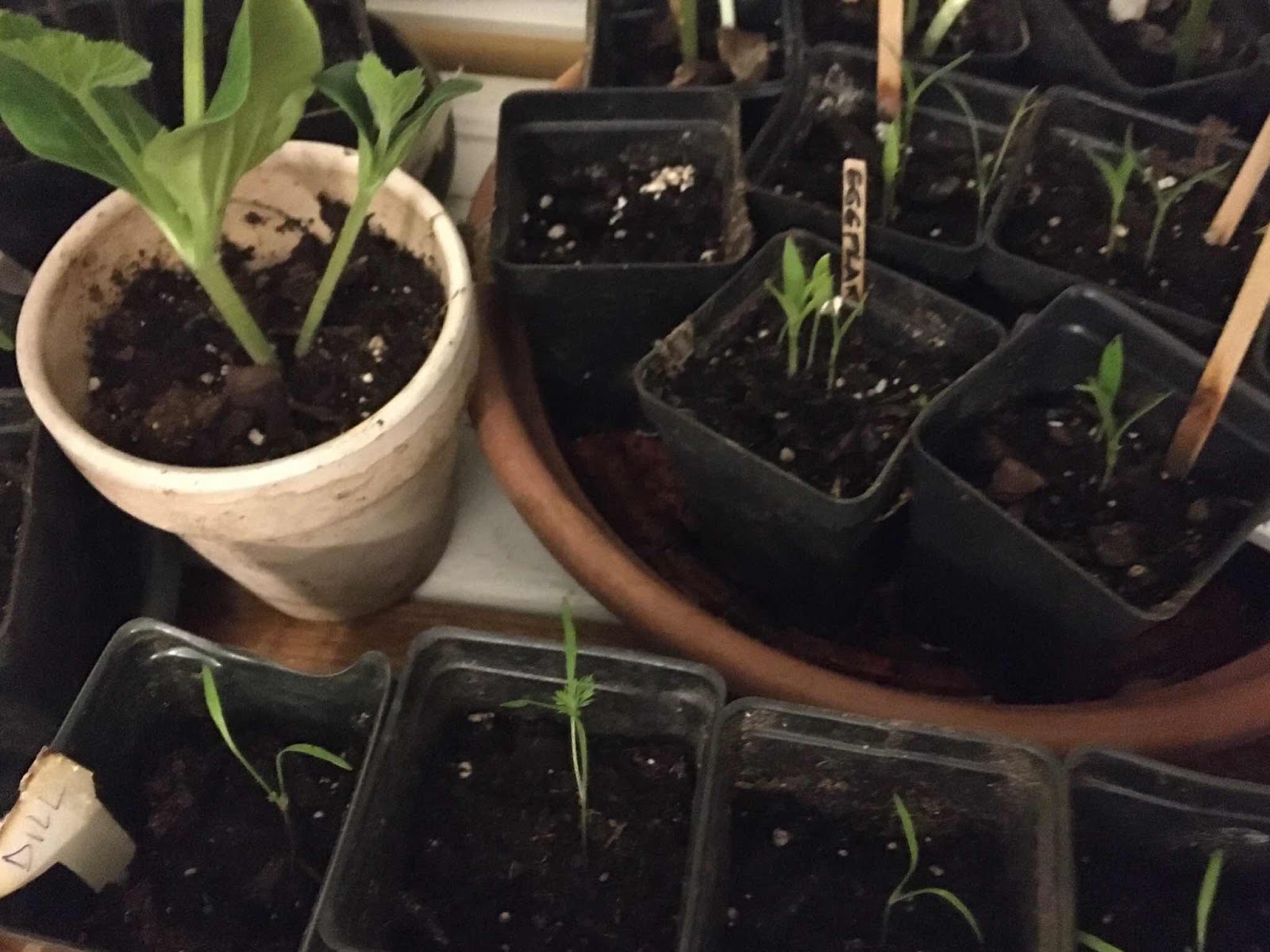Life changed quickly, a little over a month ago. Maybe for
a while, maybe for good.
I know that all of you are practicing some version of
isolation. In our household, we may be taking more extreme measures than others,
because of Pope’s compromised immune system and, predictably, my perfectionism.
I admit I am a little OCD about preventing contamination.
I walk every other day for exercise. The flowering trees have been delightful.
Pope visits his
community garden plot. We have made two trips to a grocery store, two weeks
apart. In between, I pick up milk and produce at a small, uncrowded organic market
close to our house.
Each of those excursions invokes extreme measures. Before
leaving, we don our armor.

On the return – if a store was involved – we unpeel the
protective gear, shower, throw clothes in the washer, disinfect shoe soles.
Every item that enters the house—mail, packages, food, household supplies, face
masks, latex gloves—gets cleaned with soap, disinfected with bleach, or set
aside to allow any stray virus fragments to disintegrate. I can recite by heart
the estimated time for the virus to break down on various materials.
Consequence: our house is a mess. Food and packages are stacked
up just inside the door, grocery bags in a corner of the kitchen. Mail is left lying
on the floor, under the mail slot.

The table by the door holds the few disinfecting supplies we
were able to dig up in early March; now, it would be hopeless to try to find
anything.

Gloves and masks are labeled by the date used and laid out to
“dry”; i.e., self-decontaminate. Since we only have a few, we have to reuse
them, just like the doctors and nurses in ICUs.


The bedroom floor has turned into my personal
gym, with yoga mat, foam roller, weights, and a setup for viewing yoga
and fitness classes on a laptop.
The living room has become Pope’s Netflix domain. Aside from
an occasional excursion to the garden, he has become a couch potato. Soon, I predict,
he’ll be online, ordering a bigger waist size.
Though Pope is a little bored, I am in high spirits. I have
my guitar, books, and an endless supply of online classes – yoga, exercise,
dance, cooking, blues guitar. Every day, dozens of musicians are live-streaming
concerts from their homes, asking only for tips via PayPal or Venmo. Theaters are
posting plays, operas, and concerts. Since I am not spending money going out, I
donate.
___________________________________________
__________________________________________
Our windowsills are covered with seedlings. Soon it will be
time to move plants outdoors and start the daily weeding and watering of our garden
plot. Fortunately, the city of DC declared gardening an allowed activity. Community
gardens stayed open. Garden centers offer online ordering and delivery, just
like restaurants.

I feel extremely fortunate to be retired and able to enjoy a
lot of these activities. I have also tackled long-term projects: updating my
will, writing election postcards, and cleaning closets.
I am grateful for having a live-in companion who is
intelligent, cooperative, and a good cook.
I hope that all of you are taking precautions, even if they
aren’t as extreme as mine. If you are working from home, I hope you remember to look out at the trees and sky, and find time
and resources for amusement. Sunshine on your shoulders, a glass of
wine on your porch, an exercise class or concert can help ease loneliness,
battle boredom, lift spirits.
Life changed quickly and will continue to evolve. For the foreseeable future,
isolation will remain a dark cloud on our horizon. I have found the silver lining.